James Paterson gets to grips with the key and fill technique for beautifully lit portraits

Key and fill is one of the most fundamental concepts in lighting. It’s a reliable technique not just for portraits, but for lots of different subjects.
In essence a key and fill are two light sources – one slightly stronger than the other. The key light is the main light used to illuminate our subject, while the fill light provides a lift to the shadows. It’s such an effective technique for lighting because it gives depth and form to our subject. It provides a play of light and shade across them and it’s this that creates a sense of depth and shape to the face of our model.
What’s more, by tweaking the ratio of our two light sources we can control the contrast over our subject. With a low-strength fill light the contrast will be strong, and with a higher fill light the contrast will be less severe.
Our two light sources for key and fill could be anything we like: studio flash, Speedlites, LEDs, sunlight, reflectors… even your phone torch. Initially, here, we’ve used two LEDs, and over the page we also explore using flash.
You can also get technical with it and measure the differences using a light meter. This level of precision is great practice, but it’s not essential. You can also take a few test shots and eyeball it, judging the strength of the fill.
Over the next few pages we’ll look at how this simple setup can lead to great portraits in the studio, and all kinds of other scenarios.…
THE SETUP / Key and fill lighting
1 Key light
Our key light is a Rotolight Aeos LED. Its output (100%) is set higher than the fill light opposite (also a Rotolight Aeos). It’s positioned off to the left of the camera and above the face in a classic Rembrandt lighting position, with a triangular shadow forming on the opposite cheek.
2 Highlights
This story is from the May 2019 edition of N-Photo: the Nikon magazine.
Start your 7-day Magzter GOLD free trial to access thousands of curated premium stories, and 9,000+ magazines and newspapers.
Already a subscriber ? Sign In
This story is from the May 2019 edition of N-Photo: the Nikon magazine.
Start your 7-day Magzter GOLD free trial to access thousands of curated premium stories, and 9,000+ magazines and newspapers.
Already a subscriber? Sign In
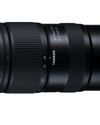
Tamron 28-75mm f/2.8 Di III RXD G2
The original version broke the mould for ‘trinity' standard zooms. The G2 enhances handling and performance further still
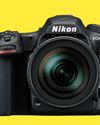
Nikon D500
Nikon's flagship DX-format DSLR is a modern classic. And while it hasn't been out of production for long, it left a hole in Nikon's camera line-up that's never been filled

Laurence Griffiths
With so much sporting action this summer, Laurence Griffiths of Getty Images reveals how to catch every goal at the Euros, details Getty Images' 24/7 Olympics coverage and why he always has a wide-angle ready. Keith Wilson managed to grab him before kick-off...
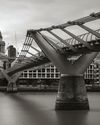
Ghost town
Adam Waring uses ND filters to subdue the hustle and bustle when shooting busy cities
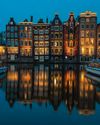
Creative cities
Experienced travel photographer Matt Higgs provides top tips for stunning shots of city sights

If at first you don't succeed...
Tom travels to the other side of the world to have another go at shooting an elusive image and displays the power of his perseverance
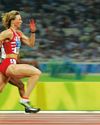
Shoot the summer of sports
Have the Olympics and Euros inspired you to photograph sport? Mike Harris shows you how to score a portfolio of top shots
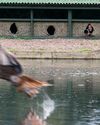
Osprey & prey
Birds of a feather Gary Jones and Leigh Pugh photograph ospreys from a purpose-built hide
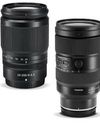
Superzoom lenses
These lenses will have you in for a long stretch, some more than others in the wide-angle to telephoto stakes
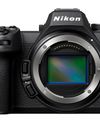
Nikon Z 6III
With a revolutionary 'partially stacked' full-frame sensor, the Z 6III fits flagship camera features in an compact enthusiast-level body